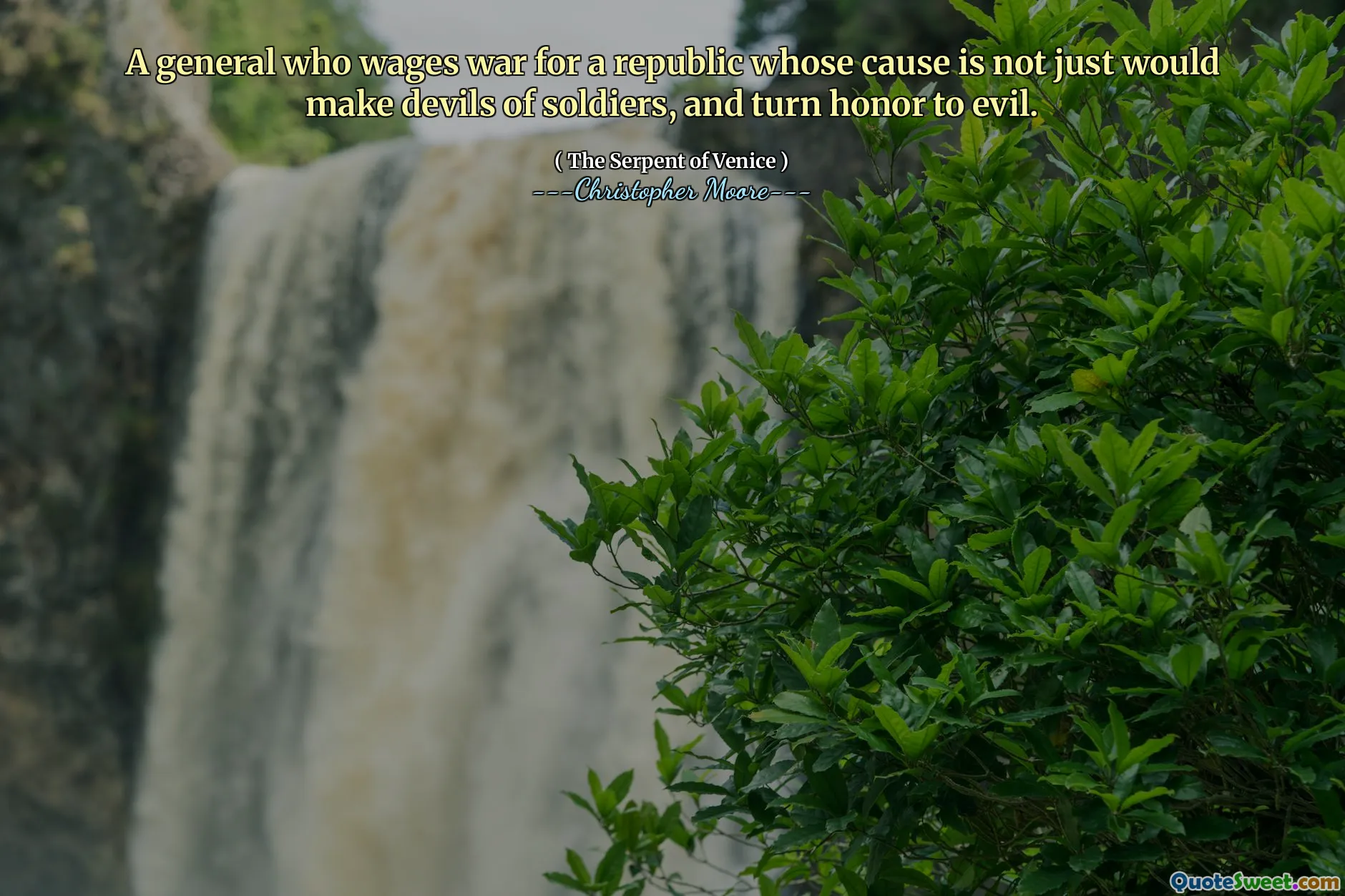
A general who wages war for a republic whose cause is not just would make devils of soldiers, and turn honor to evil.
This quote underscores the profound ethical dilemma faced by military leaders and policymakers: the righteousness of the cause for which war is fought. When the underlying rationale for conflict is flawed or unjust, even the most disciplined soldiers risk being corrupted, transforming their fundamentally honorable duties into acts that can bring about moral and spiritual degradation. The idea that waging war for a misguided or unjust purpose can turn soldiers into 'devils' highlights the corrupting power of immoral motives. It reminds us that leadership carries the responsibility not just of victory, but of ensuring that the cause remains just, for only then can the actions be considered morally defensible. The elevation of honor as a core value suggests that true nobility in warfare is rooted in justice, integrity, and purpose beyond mere conquest or power. The quote prompts reflection on historical conflicts where the motives were clouded or compromised, leading to long-term repercussions that tarnished the reputation of those involved. It's a warning that war without moral grounding risks not only environmental destruction or loss of life but also the diminishment of the moral character of those who participate in it. As inhabitants of a complex moral universe, leaders must constantly evaluate their reasons for war, ensuring that they act out of the genuine pursuit of justice rather than ambition, hatred, or greed, because once those darker drives take precedence, all that remains is chaos and evil.






